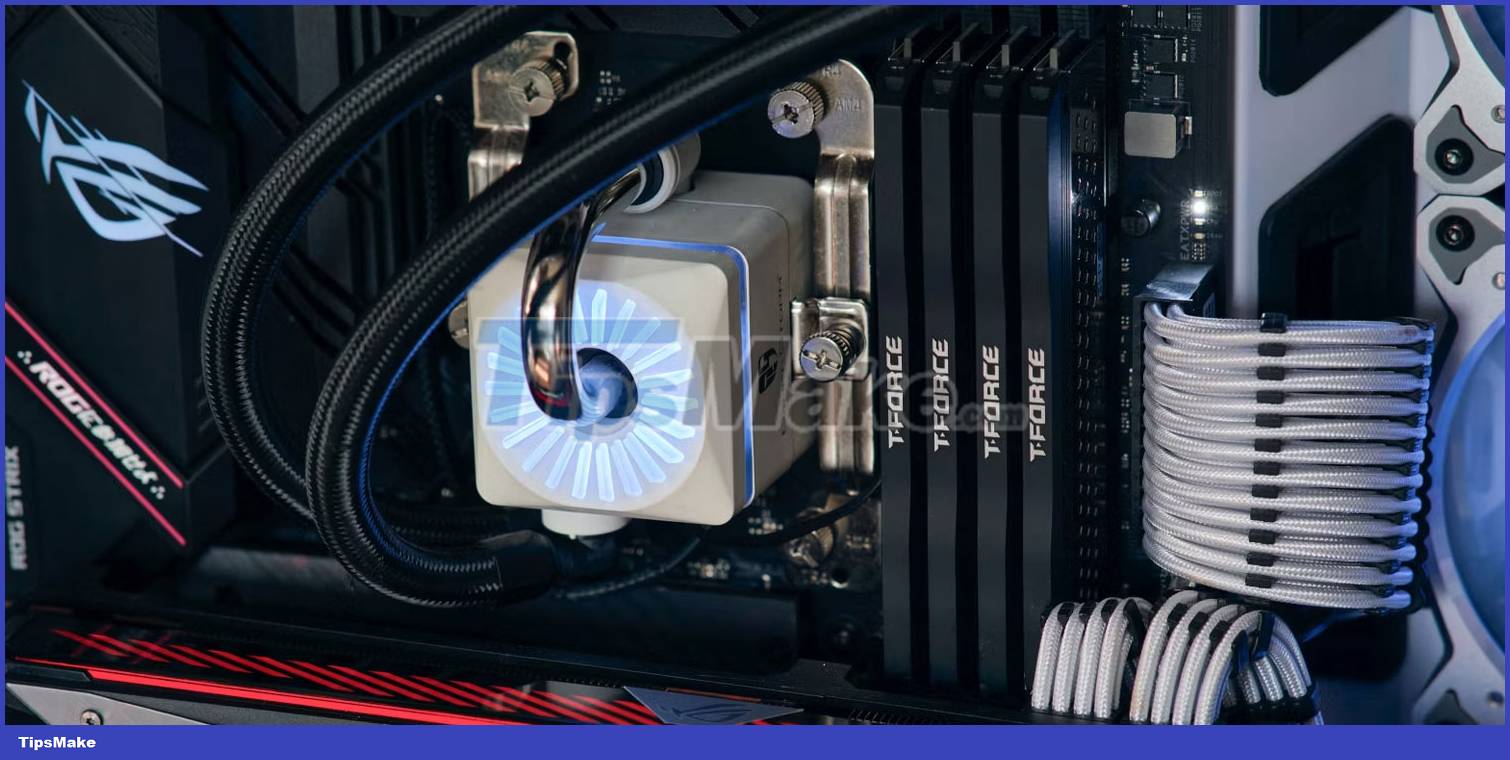Why is 16GB RAM the new standard for Windows PCs?
As operating systems become more complex, the minimum specifications for new PCs also increase to meet them. Recent reports suggest that Microsoft is working to make 16GB of RAM the minimum memory capacity for new devices. But why did Microsoft make that change and is it good for you?
What is RAM?

For those who aren't sure what RAM is: It stands for "Random Access Memory". You can imagine it like the size of your computer desk; The more room there is to work with, the more programs can run simultaneously without any problems.
Be sure to check out TipsMake's explanation of RAM so everyone can understand.
What's going on with RAM in Windows computers?
A market research report by TrendForce says Microsoft is planning to increase the minimum amount of RAM that new devices have:
Microsoft has set the baseline for DRAM in AI PCs at 16GB. Over the longer term, TrendForce predicts that PC AI will drive annual demand for PC DRAM bits to increase, with consumer upgrade trends further driving this demand.
Right now, you can buy a new PC with at least 8GB of RAM. If this report is accurate, these models will eventually be phased out and 16GB computers will replace them as the base.
Why did Microsoft choose 16GB of RAM as a baseline?

You may have noticed an interesting term in TrendForce's quote: "PC AI". While it may sound insignificant, this is why Microsoft is pushing for more RAM.
At the time of writing, we don't know exactly what "AI PC" is. Just know that many companies are developing them and as you would expect, they will have artificial intelligence in some form.
"PC AI" can be a machine in which AI powers the operating system itself. It can also be a flashy marketing term for a regular PC that comes pre-installed with some simple AI tools. Regardless of how PC AI works, those special processing engines will need more memory to function properly.
Potential setup for Windows 12
But why is Microsoft the one setting the standard for PC AI? The answer may lie in Microsoft's upcoming "Windows 12" project.
We learned about the existence of Windows 12 in early 2023. It is still unclear whether Windows 12 will be a completely new operating system or if it will be a notable remake of Windows 11. However, sources The news confirms that Windows 12 will focus heavily on AI.
We're already seeing evidence that Microsoft is making a major shift toward AI-based systems. All you need to do is fire up a Windows product, and chances are you'll see a Copilot button on it somewhere.
Copilot is Microsoft's personal AI assistant, powered by ChatGPT. Right now, you can find a dedicated Copilot button on Windows 10 and 11, Microsoft Edge, and Office. The company has also released a standalone Copilot app for Android.
Windows 12 is currently said to have a release date of 2025, which gives Microsoft plenty of time to implement artificial intelligence into its operating system. And for people to get the most out of Windows 12, Microsoft needs new PCs with enough RAM to support it; therefore 16GB is recommended.
Is setting 16GB RAM as the new standard good news for you?
Although Microsoft has reasons to increase the minimum RAM capacity, its statement is easily doubted. Who's to say that this isn't just a move to increase demand for RAM and push up hardware prices? Is 16GB of RAM really necessary?
If we imagine an AI PC as a device that constantly runs artificial intelligence-based processes, then 16GB of RAM makes a lot of sense. We previously covered whether 4GB of RAM is enough for Windows 11, and in that piece we inferred that using 8GB of RAM to run the operating system is doable but not ideal. .
If 8GB of RAM is already a 'necessary factor' to run Windows 11, then adding AI processes may be the factor that pushes the requirement higher. And while we don't have any specific numbers on how PC AI will perform with 8GB of RAM, you should still enter the new era with at least 16GB of memory.
While this may sound like Microsoft is looking for an excuse to sell PCs with more RAM, their claims have a lot of substance. We'll have to wait a while to see what "PC AI" means before making any further judgments.